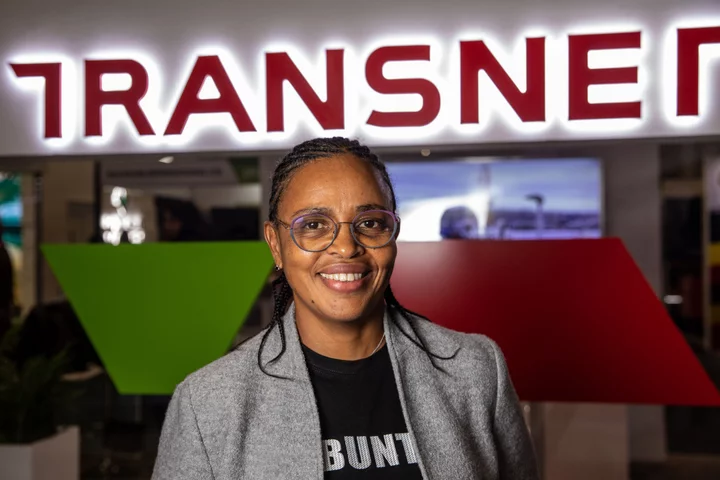South Africa’s surge in trucking that’s emerged largely due to higher coal prices and train bottlenecks may lead to catastrophic job losses in the road transport sector when factors ease, according to the head of the state-owned port and rail company.
The logistic problems faced by Transnet SOC Ltd. — from locomotive shortages to vandalism — have forced miners to choose the more expensive option of trucking commodities to the coast to take advantage of higher prices.
Over 3,500 trucks per day carry mined products across the nation’s roads, more than double such traffic in 2020, according to Minerals Council South Africa.
That raises concern over what will happen to truck owners in the wake of lower commodity prices and as rail operations improve, Transnet SOC Ltd. Chief Executive Officer Portia Derby said at a Bloomberg event in Johannesburg. Operators in the sector need to start earnest talks and establish a model that will include truckers long-term.
“We have created the demand — our failure on one hand and also the demand of the mining industry has created the trucking industry,” she said. “For the vast majority of the truckers they are moms and pops, who when they left work took their pensions and bought a truck because there was an opportunity.”
Trucks carrying coal and other commodities sit in queues that stretch for miles to the Mozambican border and crowd ports along the coast. The onslaught of traffic in rural areas and towns has created safety issues for the communities as well as drivers.
But prices for export coal have dropped more than 50% in the first half of the year, compared to the same period in 2022, Exxaro Resources Ltd. reported Thursday in a results statement.
“In the light of the reduced coal prices, we have temporarily stopped trucking coal,” Kgabi Masia, Exxaro’s managing director for minerals, said on the company’s earnings call. “We continue to explore economically viable alternative routes to export coal.”
A number of attacks on trucks also occurred last month. Armed gangs burned twenty of the vehicles carrying coal in violence that the government described as economic sabotage within the industry.
“We certainly need to get more more freight off the roads and back on the rail straight to port and in a very streamlined manner,” Chiedza Madzima, head of operational risk research for BMI-Fitch Solutions, said at the event.
Richards Bay Coal Terminal shipped 50 million tons of the fuel last year, the lowest amount in three decades, due to the rail issues.
“I hope our performance is not worse than last year,” Derby said. “So we are working really hard to make sure that we at least meet the 60 million tons that we committed to.”
--With assistance from Janice Kew.
(Adds Exxaro suspending trucking coal in eighth paragraph, truck attacks)

